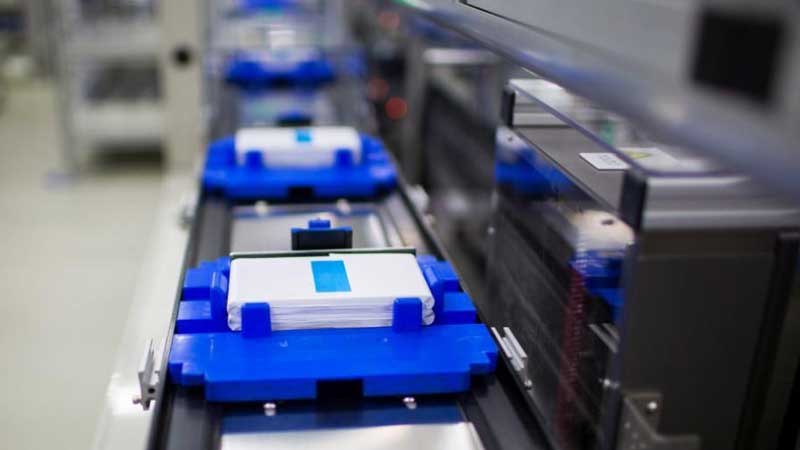The Chinese battery maker linked to electric vehicle (EV) pioneer Tesla says it is standing ready to make a battery that can last more than a million miles.
A battery that can last a million miles has been promised by Tesla CEO and co-founder Elon Musk, and its development is central to the huge interest in an upcoming Battery Day planned by the Californian electric car maker.
Such a battery would not allow an EV driver to drive a million miles without charging (that is referred to as driving range), but would instead enable an electric car battery to discharge and recharge several thousand times, outlasting the life span of today’s batteries by many years.
New information, however, suggests that CATL’s electric car battery could last even longer than that.
In an interview at the company’s headquarter in Ningde, China, Zeng Yuqun, chair of Contemporary Amperex Technology (also known at CATL) said that the Chinese battery maker is ready to make a battery that can last 24% longer – 1.24 million miles, or two million kilometres, Bloomberg reported on Monday.
“If someone places an order, we are ready to produce,” Zeng was quoted as saying by Bloomberg.
But there would be a cost. Reuters reported that a new no-cobalt lithium iron phosphate (LFP) battery chemistry resulting from CATL research and development could bring the cost of making electric car battery packs down to $US80/kWh.
However, the “million mile plus” battery would cost about 10% more than today’s batteries, Bloomberg reported Zeng as saying.
Zeng did not reveal if there have been any contracts signed yet either, although other news suggests that CATL is also courting a deal with American auto giant General Motors (GM).
The car giant revealed details of its plans to transition to electric cars at an “EV Day” in March, however GM CEO Mary Barra said in an interview on “Leadership Live With David Rubenstein” on Bloomberg TV on Tuesday that although GM sees a future that is all-electric, she believes the transition will take decades.
“We believe in all-electric future,” Barra told Rubenstein. “We believe the transition will happen over time.”
In May, Zeng revealed details of its deal with Tesla, saying that it would be a global deal (not limited to China) and may include making batteries with Tesla, following the strategy Tesla has undertaken with Panasonic, previously its sole battery partner.
In the same week, GM executive VP Doug Parks said the US car maker, which is planning a range of electric cars including a Hummer EV and electric Cadillac, is also very close to a million mile battery.
While Parks said that GM had “multiple teams” working on a long-life battery, it has now been revealed that it is also working closely with Chinese battery maker CATL, at least for its Chinese operations.
“We have already established a good working relationship and supply agreement with CATL,” Julian Blissett, GM’s China president, was quoted as saying by Reuters in a report on Thursday.
“We will work very closely with CATL in the future.
The Chinese arm of the US car giant will not be importing parts for its locally made “new energy vehicles”, as they are known in China.
“We are not planning on importing any major components for new energy vehicles. The drive units, batteries, motors, etc, will be made locally in China,” Blissett was quoted as saying in a transcript provided to Reuters by GM.
The localisation of parts is a goal that Tesla is also working towards achieving in China in order to lower the cost of making electric vehicles in the Asian nation.

Bridie Schmidt is associate editor for The Driven, sister site of Renew Economy. She has been writing about electric vehicles since 2018, and has a keen interest in the role that zero-emissions transport has to play in sustainability. She has participated in podcasts such as Download This Show with Marc Fennell and Shirtloads of Science with Karl Kruszelnicki and is co-organiser of the Northern Rivers Electric Vehicle Forum. Bridie also owns a Tesla Model Y and has it available for hire on evee.com.au.

